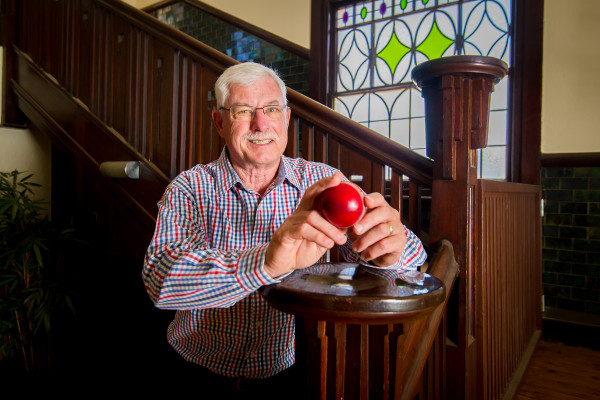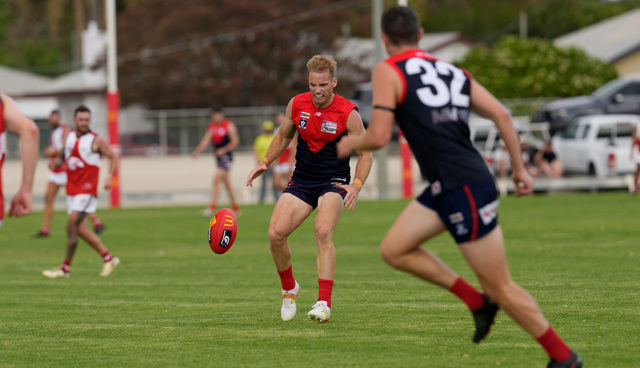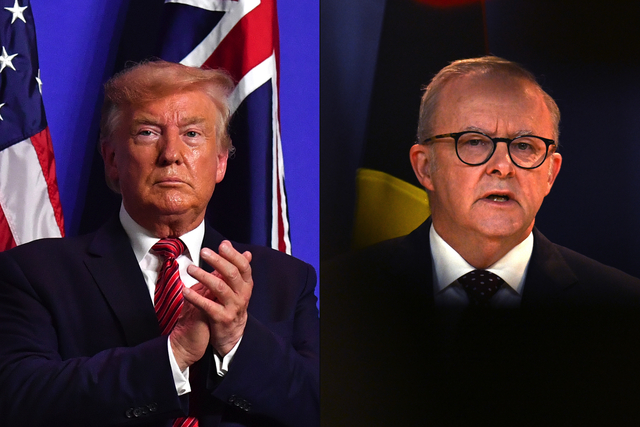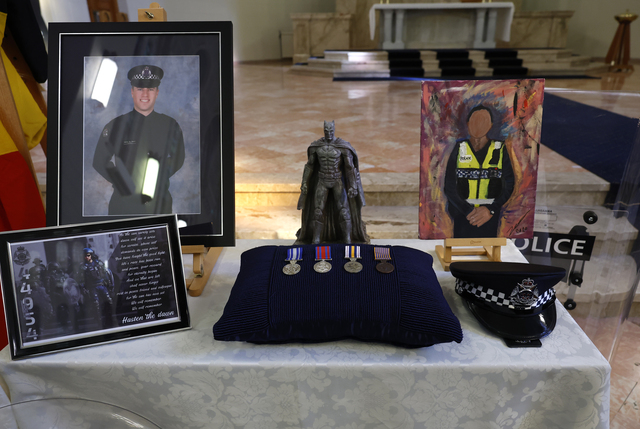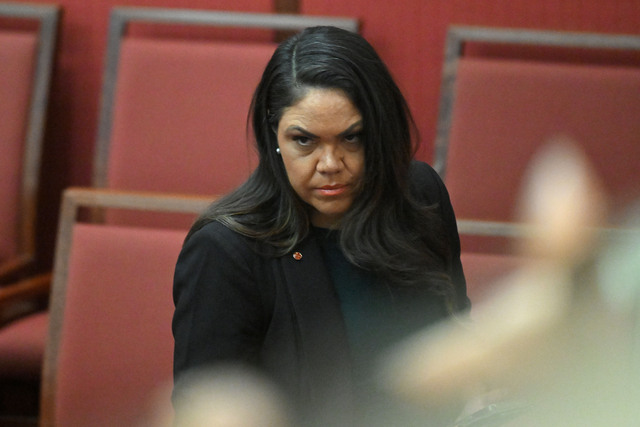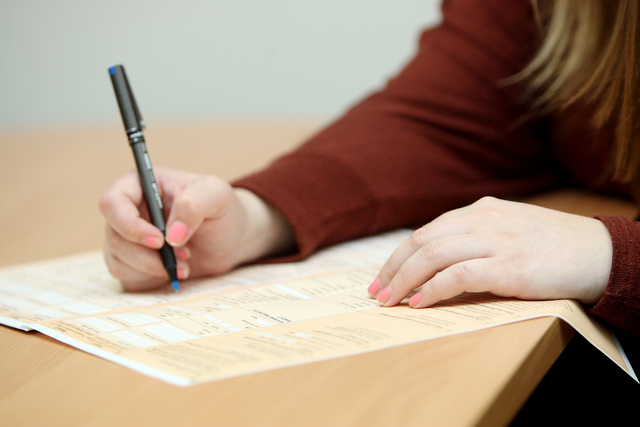NEW Zealand are still underdogs against Australia despite sitting three places above the hosts in the world Test rankings, one of the country’s greatest cricketers says.
Sir Richard Hadlee, who was the special guest at The Mildura Club’s Christmas luncheon yesterday, says his nation’s tour of Australia starting next month would be a massive challenge even though NZ are second in the International Cricket Council rankings and Australia fifth.
“I think Australia are still favourites, definitely on their home soil. We’ve got to stay in the fight because we’re going to have some tough sessions and tough days,” Hadlee said. “We’ve still got to hang tough, that’s the key to it, our mental fortitude will be tested outside of our playing ability technical-wise.”
Hadlee said the Australian heat, hard pitches, timezone changes, travel and “noisy parochial crowds, to say the least” would all give the visitors some difficultly.
“It’s going to be a massive challenge, if we can square the series somehow or pinch a Test along the line the tour will be a success,” he said.
“I think the Australian quick bowlers are the best combination in the world today.
“I certainly rate (Josh) Hazelwood as an outstanding fast bowler – I’ve loved him from when I first saw him play – then you’ve got Mitchell Starc,
Pat Cummins is No.1, James Pattinson – they are just at you all day.”
Despite this, the ICC Hall of Famer, who took 431 Test wickets at an average of 22 and scored more than 3000 runs at an average of 27 over an 86 Test career, said he was proud of the state of New Zealand cricket.
“In my day the 1970s was a breakthrough era, the significant first victory over Australia in 1974 and England in 1978, then throughout the ’80s we never lost a Test series at home, that was significant and we were winning away from home,” Hadlee said.
“The ’80s era, in particular, the “glorious 80s” it was called, but clearly over the past 10-12 years … the team has progressed, we are No.2 in the Test game, we compete really well in one-day cricket and the Twenty20 game.
“I’m very pleased with the way they are going … we’ve got two to three batsmen in the top five or six (in the world), we’ve got two or three bowlers in the top 10, we’re very competitive and performing at home and away from home.”
Hadlee said the New Zealand team’s success, including being runner-up at the most recent one-day international World Cup in England, reflected the strength of the game in the country.
“We’ve got a good nucleus of players and we’ve got some good depth coming through, and that’s a reflection of the pathway we have through our high-performance centres, domestic cricket, and even our women’s game is growing considerably,” he said.
“So the state of our game at the moment is extremely positive and the players are getting the results and New Zealand cricket is reaping the rewards.”
New Zealand play Australia in a three-Test series over December and January, with the first Test in Perth from December 12-16.
Family legacy a strain
SIR Richard Hadlee said his surname already weighed on him when he came on to the international cricket scene in 1973.
The New Zealand legend and ICC Hall of Famer is the son of former New Zealand Test captain Walter and the youngest of three Hadlee siblings to play international cricket.
He said his father’s legacy cast a shadow that was hard for his children to get out of.
“Coming into a family cricket environment, Dad’s captaincy and the way he was perceived in New Zealand as a person, there was a lot of pressure on a lot of the boys – there was five of us – my younger brother gave the game away at 12 years of age but Barry, Dayle and myself played internationally,” Hadlee said.
“So there were high expectations and we put those expectations on ourselves … at the end of the day it was our own pride, our pride in performance that drove us.
“Barry only played a handful of one dayers, but all three of us played against England in an ODI in the World Cup against England in 1975.
Dayle and I played quite a lot together for Canterbury and, of course, New Zealand.”
Hadlee said one positive to having your brother in the side meant you had to be on your game.
“We were at each other in the sense we wanted to outdo each other, there was a family rivalry,” he said.
“And that was good for us because if he got three wickets I wanted four, if he was batting at seven and I was eight I’d want those positions to be reversed by scoring more runs.
“It was a friendly sort of competitive rivalry and it benefited the team.”

